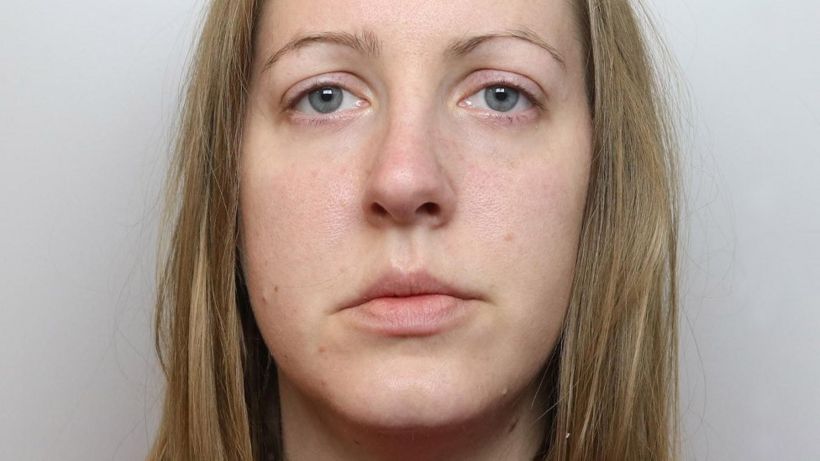Lucy Letby’s barrister says she has ‘new hope’, as he prepares to submit 1,000 pages of fresh evidence that he believes will ‘clear her name’. In an ideal justice system, evidence that proves an inmate’s innocence would of course lead to their release, but we don’t have an ideal justice system, as I learned as a student.
During my late teens and early twenties, I spent a lot of time in maximum security prisons – thankfully, only as a visitor. My secondary school was run by a secretive cult which made me feel sad and trapped. Months before I left, I read Error of Judgement, Chris Mullin’s book about the case of the Birmingham Six, who were framed for the 1974 Birmingham pub bombings.
Who would feel safe entrusting their baby to a health service that might have shown such cowardice and cruelty to one of their own?
Clearly, their plight was a touch more serious than mine, but I think my bizarre ‘schooling’ helped me empathise with them. I joined the campaigns for the Six and other prisoners: the Guildford Four, Tottenham Three and Judith Ward. For several years, we travelled up and down the country to visit these people in prison, to protest, lobby and to be told repeatedly that we were wrong.
Except we weren’t wrong: all the prisoners we campaigned for were vindicated, cleared and released. Being there in person to see them walk free from the Old Bailey and High Court was a thrill and a privilege every time. I’ll never forget the stunned ecstasy that shot through my veins when Gerry Conlon of the Guildford Four emerged to cheers and punched the air defiantly.
Perhaps the biggest lesson I learned was that if you want to clear an innocent prisoner’s name, it’s not enough to just present compelling evidence. Finding fresh evidence is important but ultimately you have to get the public to pay attention and make it more embarrassing for the authorities to keep innocent people locked up than to let them out.
Take the Birmingham Six. In 1987, they presented convincing new evidence of their innocence to the Court of Appeal, but the Lord Chief Justice dismissed the appeals, saying: ‘The longer this case has gone on, the more convinced this court has become that the verdict of the jury was correct.’
They returned to the Court of Appeal in 1991, and this time they walked free. At both the 1987 and 1991 hearings, the six men’s evidence should have been enough to release them. The difference in 1991 was that public awareness and pressure was stronger.
It takes a lot for the establishment to own up to its mistakes, especially when the reputations of the police and courts are at stake. For campaigners and defence lawyers, it can feel like climbing a mountain. For Letby and her team, that climb will be steeper than usual because if she were proven and accepted to be innocent, it’s not just the police and courts that would look bad; it would be her colleagues, her hospital and the hallowed NHS itself.
I’m not involved in Letby’s campaign and I don’t know if she’s innocent or guilty. Some of what’s been presented in the media about her case makes the conviction look incredibly unsafe and unsatisfactory, but the trial was ten months long, so a handful of points in a TV documentary aren’t really enough for me to decide.
But if she is innocent, overturning her conviction will be a mammoth task, because of the loss of face it would involve. This was spelt out brutally during the Birmingham Six years. Lord Denning, then the Master of the Rolls, said that if the six men were cleared, it would mean the police were guilty of perjury, violence and threats, which would be ‘such an appalling vista”’ that ‘every sensible person’ would say any appeals should be stopped.
The vista of Letby’s vindication would be even more appalling because as well as showing the police and courts in a terrible light, it would raise very difficult questions about the NHS too.
Who would feel safe entrusting their baby to a health service that might have shown such cowardice and cruelty to one of their own? Isn’t the thought of a health service scapegoating an innocent nurse to hide systematic failings not more frightening than one where a now-captured rogue nurse killed babies? As well as considering fresh evidence, the courts will consider this and whether the vista would be too appalling.







Comments